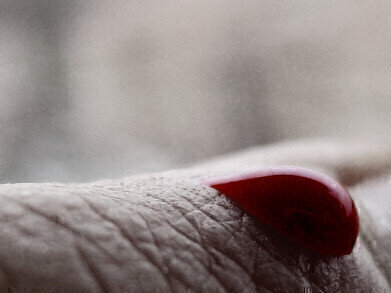News & Views
Scientists Claim to Detect Cancer with Single Drop of Blood
Nov 10 2015
The quest to conquer cancer is long and enduring. So when scientists come up with a genuinely legitimate development, the world is understandably excited. The sparks of hope have once again been ignited, with scientists claiming that it’s now possible to diagnose cancer with just a single drop of blood. So what’s all the fuss about? And is it a valid claim? Read on as we explore the latest proof-of-concept study from Amsterdam’s finest.
The proof is in the platelets
The scientists based their tests around miniscule cell fragments called platelets. The elements are the second most common cell found in peripheral blood and are generally used to fast-track the healing of wounds by clotting blood to prevent excessive bleeding. However, they are also capable of running wild and facilitating the progression of cancer. Now, scientist Robert Weinberg is proposing that platelets can be “educated” via a process that sees proteins and other molecules produced by cancer cells isolated.
“In this way, platelets that are usually healing wounds help the tumour do its work,” explains lead researcher Thomas Wurdinger of Amsterdam’s VU University Medical Center. “They induce the cell growth switch, so tumours start to migrate towards blood vessels and release cells into the blood stream that can spread. In addition, they promote the growth of blood vessels from the tumour, or angiogenesis.”
The supply of blood helps to feed the tumour and prevent the middle section from perishing due to lack of oxygen.
RNA separates the sick from the healthy
Wurdinger and his team first noticed the relationship back in 2011 when they identified RNA within educated platelets. The polymeric molecule is the chemical cousin of DNA and actively facilitates protein synthesis. In a study titled Cancer Cell, Wurdinger and his co-researchers explain how RNA profiles can be used as a means of cancer diagnostics.
The study drew on data from over 300 patients, with six millilitres of blood extracted from each individual. The droplets were then spun down to isolate the platelets and enable analysis of RNA. Using the results they were able to separate healthy patients from their cancer fraught counterparts, with an incredible 96% accuracy. Using purpose built computer algorithms they were also able to pinpoint the exact location of the tumour in 71% of cases.
“The results could guide further diagnostic tests for confirmation, helping clinicians know where to look and reducing the need for unnecessary, invasive biopsies,” says Wurdinger.
Scientific research is revolutionising the medical sphere, with articles such as ‘Chromatrap®: A fast, Reliable High-Throughput ChIP-seq Assay for Genome-Wide Protein-DNA Analysis’ exploring some of the latest cutting edge developments in genome-wide profiling of DNA-binding proteins and histone modifications.
Image via Flickr Creative Commons. Credits: Mattia Belletti
Digital Edition
LMUK 49.7 Nov 2024
November 2024
News - Research & Events News - News & Views Articles - They’re burning the labs... Spotlight Features - Incubators, Freezers & Cooling Equipment - Pumps, Valves & Liquid Hand...
View all digital editions
Events
Nov 18 2024 Shanghai, China
Nov 20 2024 Karachi, Pakistan
Nov 27 2024 Istanbul, Turkey
Jan 22 2025 Tokyo, Japan
Jan 22 2025 Birmingham, UK




.jpg)














